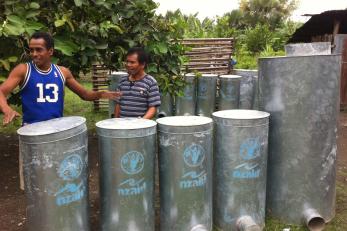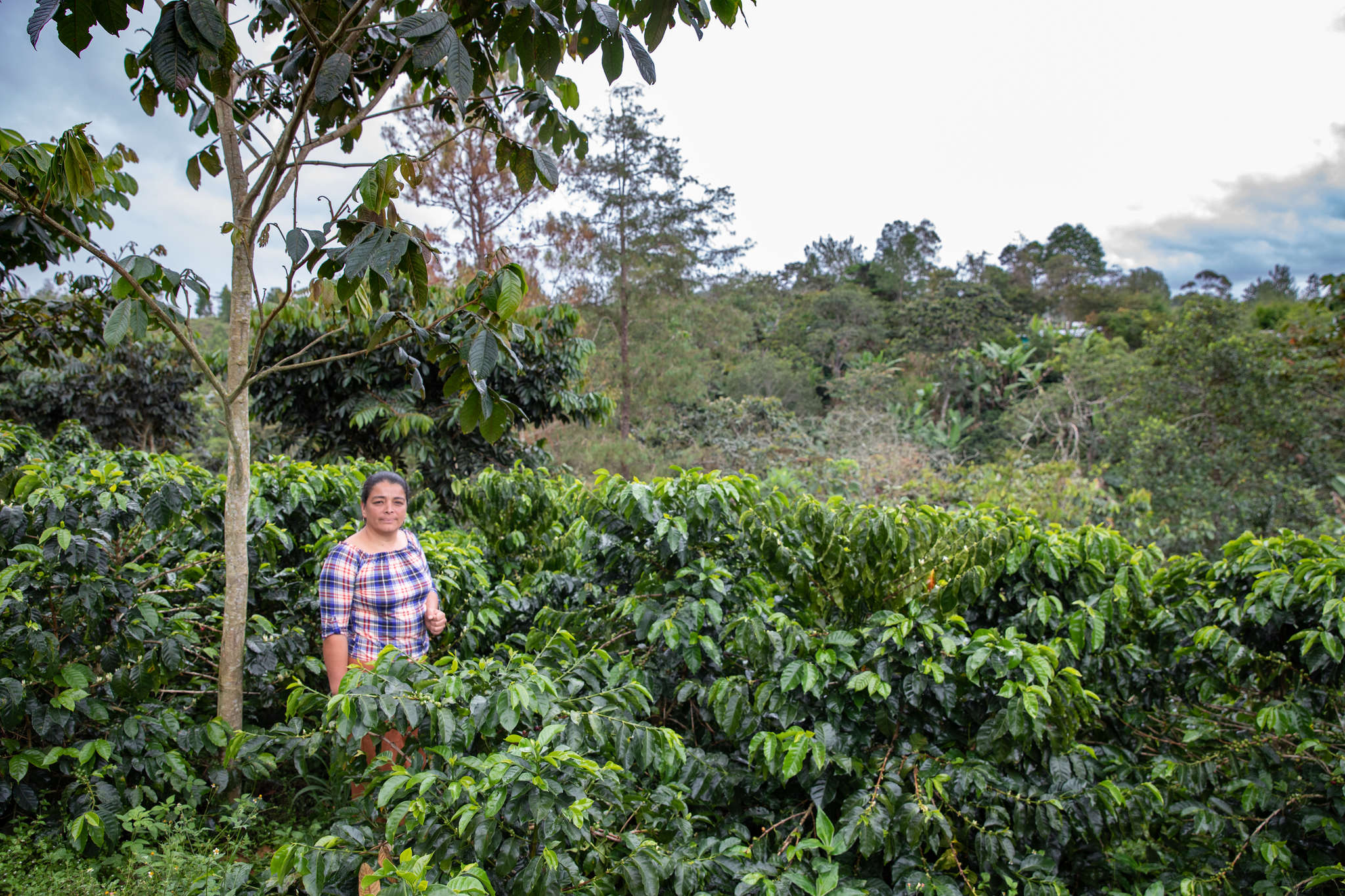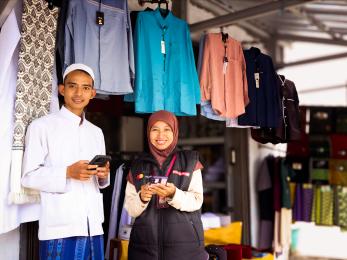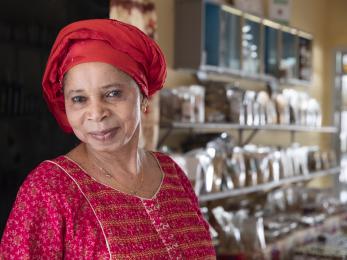Farmers in Timor-Leste store up for a better future

The road to Ainaro District from Dili —the capital city of Timor-Leste, one of the world's newest countries — has never been as bad as it is now, at least in my experience. Since the la Nina phenomenon started in March of last year, it has brought an extended and intensive rainy season to this whole part of the country.
These rains have negatively impacted the country. Farmers were not able to grow foods properly, many drainage and irrigation systems are not functioning, and the road conditions are getting worse and worse by the day. Many roads to villages are now simply impassable. But still, we set our sites on visiting Ainaro District, as it is one of the target districts of the Mercy Corps Food Security program that I am managing.
I have always been able to find out something or meet someone interesting every time I visit Ainaro. This time is no different; I’ve been able to meet and talk with someone who has big potential to help improve the country’s agriculture performance, particularly to help farmers in Ainaro access improved storage systems. Many researches have confirmed that supporting access to better storage will have a significant positive impact on food production — in particular, corn and rice, which are the main staple foods in Timor-Leste.
His name is Mario de Jesus. He is living in a very simple traditional hut with his family in Casa, Ainaro. His home is on the side of the main road, about eight kilometers from Ainaro on the way to the city of Suai. Mario de Jesus is one of two UN Food and Agriculture Organization (FAO)-trained silo makers who are working to make a silo business in the district. Currently, Mario’s business totally depends on orders from FAO and other agencies that can help him access materials — the tins and molds — for the silos. There is a signboard in front of his house that lets passerby know he is a silo maker.
When we met, it was day time and the rain was still pouring down. He was just relaxing in his hut. I needed to visit Mario to talk about our plan to link Mercy Corps’ target farmer groups to his silo business.
“Yes, the FAO office in Dili just called me to say they will send me the materials next week so I can make silos for your target farmers.” That was his reply when I asked him whether FAO had contacted him. Mercy Corps Timor-Leste, through the SECURE program, is currently working with FAO to help farmers have access to better storage systems.
FAO has already trained 13 local blacksmiths all over the country to make locally-produced silos for farmers. The organization provided the blacksmiths with imported materials from Australia or China. To be able to get the silo, the selected farmers only have to pay the production costs for the blacksmith.
When I asked Mario if there are any extra or leftover materials for him to make extra silos to sell through his business, he soundly said, “if we have extra, then it will easily sell out.” According to him, food containers and silos are in very high demand from the surrounding communities. He mentioned that, several times, farmers have offered him to give one buffalo in exchange for a 1500 kg silo. But because he doesn’t have capital to buy materials nor know where to get it, he couldn't take them up on that very appealing offer.
This is one of the key challenges we face in Timor-Leste: market access in rural areas is very poor. Access to financing for small entrepreneurs is also difficult. But we are making a start by promoting the linkages between FAO-trained silo makers and our target communities; we will begin to see a difference in the quality of storage for poverty-affected farmers.
Better storage means they can store more food for longer periods, ensuring that their families have food to eat. It also means better storage for seeds, which are critical to livelihoods here. If seeds can be stored in air- and water-tight silos, then more remain viable for the next planting season.
Let’s hope that, with time and the right support, the silo-makers will grow into booming businesses to help bring access to improved storage to many more of Timor-Leste’s farmers.


